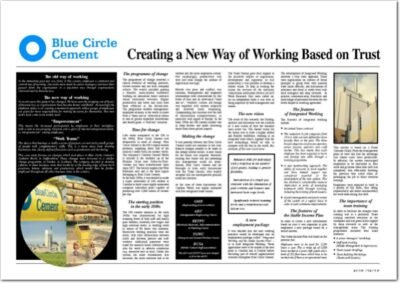Work injury claims are fairly common and often successful. However, if you’re considering submitting a claim, then you should be prepared for a challenge. If your injury makes it impossible for you to work, then you may want to know if you’re eligible for compensation. Although each injury is different, these are some of the things to consider before submitting a claim.
Know What You Can Sue For
Before you even start thinking about filing a claim, you have to know if you can actually file a valid claim. Some of the accidents that you can seek compensation for include tripping, slipping or falls because of poorly maintained or defective equipment, dangerous workplace practices, toxic substances and noxious environment, co-worker negligence, falling objects, assault at work, bad or insufficient training, dangerous machinery and non-adherence to safety and health regulations. You can also file a claim if you’ve been in an accident when operating a forklift or crane, back injuries from faulty lifting as a result of poor training, or industrial injuries like vibration white finger.
Amount of Compensation
The amount of compensation that you can seek is going to vary depending on different factors. Solicitors can help you understand the range of compensation to expect. You’ll want to consider the severity of the accident, how much time is needed to recover, and any other parties that may be affected by the injury such as family members. All of these will play a role in determining how much compensation is to be expected.
Existence of Evidence
In order to file a claim, there has to be a fair amount of evidence present. Regardless of the situation, you need to collect evidence as early as possible to support the claim. Law firms can help come up with a list of evidence needed and work on getting the evidence as early as possible. Photos from the scene of the accident, doctor’s reports, and eyewitness statements are just a few examples. An injury lawyer can work with you to determine any gaps in evidence and how to obtain anything missing.
Determine Who Is at Fault
Although many people are injured in the workplace, you are only eligible to submit a claim if someone else was responsible for a situation that led to your accident. For example, if your supervisor did not supply the necessary equipment or a co-worker was engaging in dangerous behaviour, which led to the accident, then you can point to this problem in the lawsuit. Keep in mind that your own errors, such as failing to follow established safety guidelines, would not be the fault of the workplace. Once again, lawyers can help you determine who, if anyone, was at fault.
File Early
As law firms will tell you, you only have a limited amount of time to make a claim. In the UK, you have up to three years to file. This is three years from either the accident or three years from the time when you found that the injury was associated with the accident.
Examples of this include asbestos, which can take years to turn into a diagnosable illness. In any case, though, filing earlier will help to prevent any time-related problems.
Determine a Payment Method
Legal fees can add up quickly, especially for a complicated or extended trial period. Make sure to determine how the legal fees will be paid when you first meet with a personal injury solicitor. Some solicitors such as the Plymouth based team Roper James work using a “no win, no fee” basis, which won’t cost you anything if your case is unsuccessful. However, you may still have to pay them a success fee if you win the case. Payment for legal fees may also be available from industry organisations or a trade union. Review your payment before proceeding with a claim.
Discuss the Case with the Solicitor
After you’ve met with the solicitor, explain the situation and ask them for their advice on whether the case has merit. An injury lawyer who has experience in work claims will have a general idea if the case is worth their time and will generally recommend pursuing the claim or not. You can always get a second opinion of course, but some work claims are difficult to prove. If you receive multiple recommendations to not pursue a claim, then you may want to reconsider.
A solicitor may also ask for additional information before making a recommendation. Having a successful case may depend on the strength of the evidence. Many factors are involved in a work claim, so have the documentation ready when meeting with the solicitor to avoid wasting any time on the way.
Conclusion
These are a few of the things you’ll want to know in order to determine if you are eligible for work injury compensation. Although many people are injured in the workplace, not all of them qualify. Use an expert solicitor to get even more specialised information in this area.
 Developing the skills for managing change (MP3)
Developing the skills for managing change (MP3)  UNISON and unions' wider role (PDF)
UNISON and unions' wider role (PDF)  Creating a new way of working based on trust (PDF)
Creating a new way of working based on trust (PDF)  First Group A3 ePoster Edition 13 "Managing external influences"
First Group A3 ePoster Edition 13 "Managing external influences" 